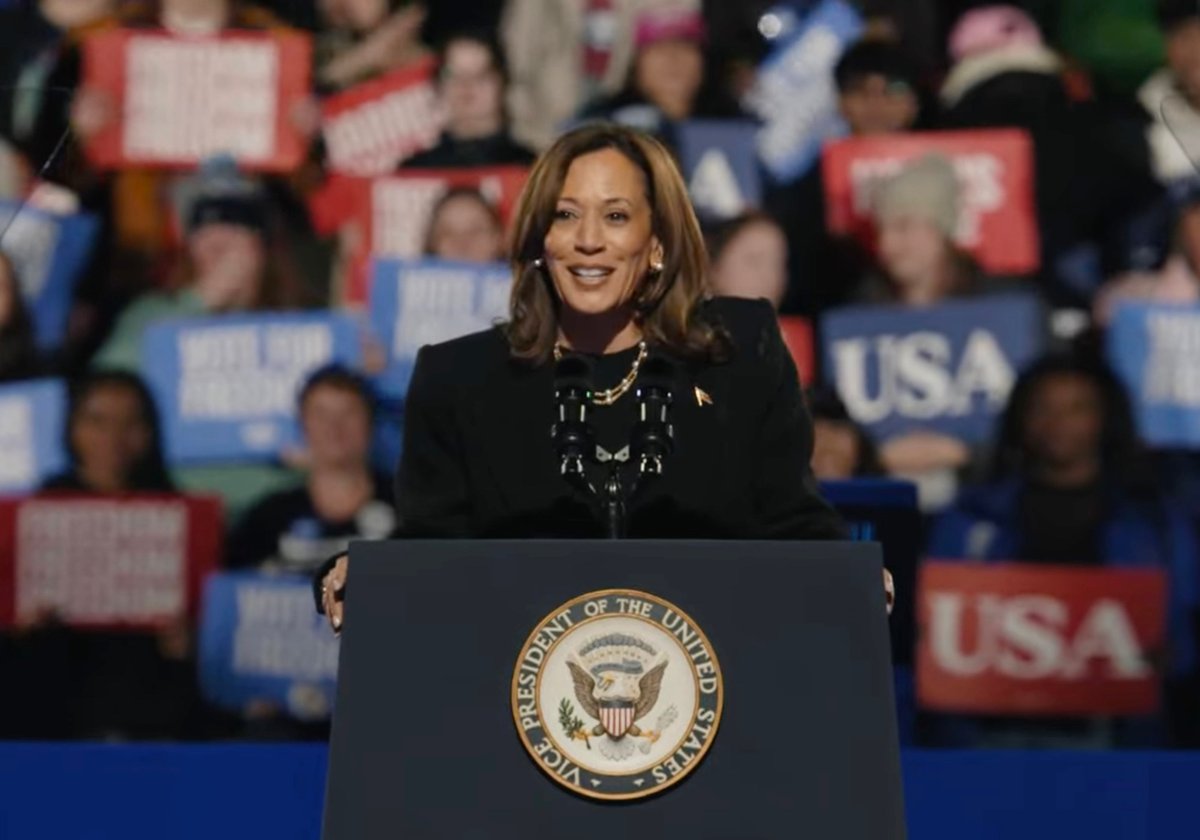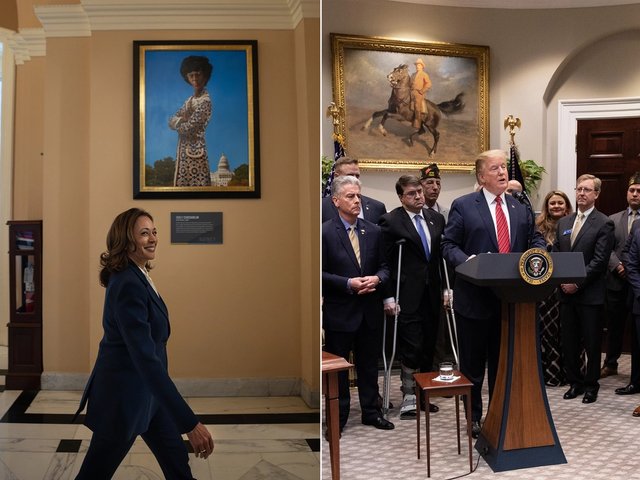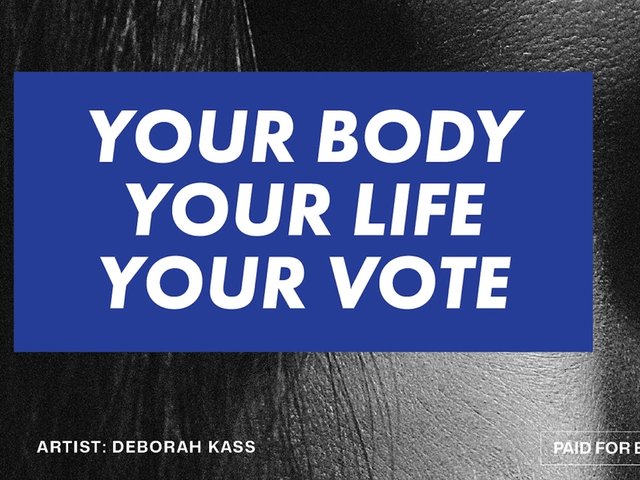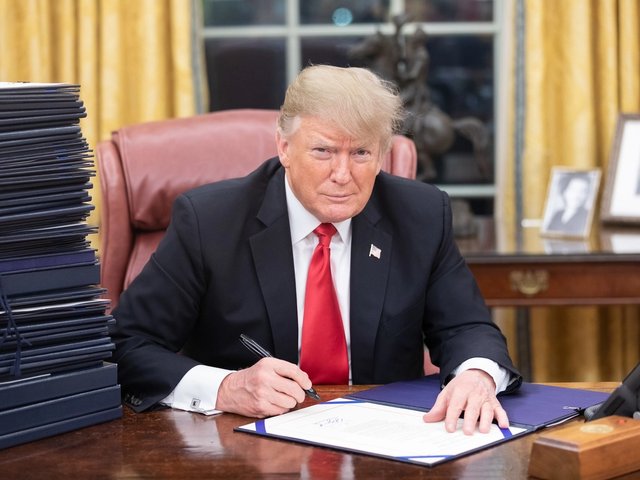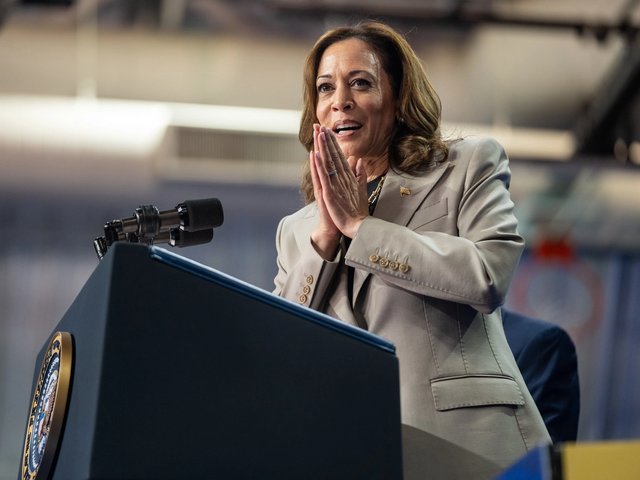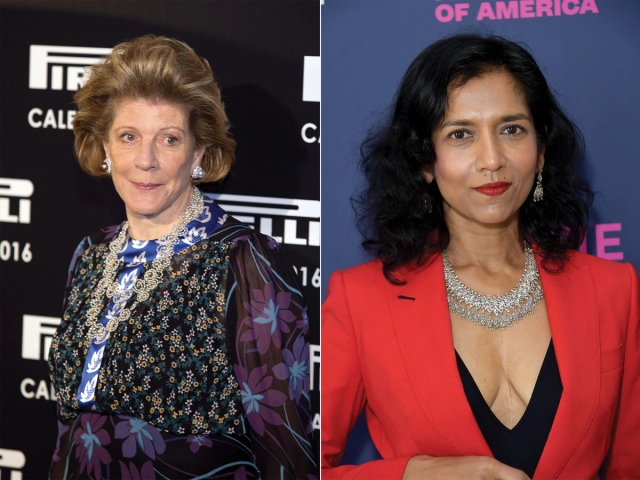For the final rally of her relatively brief campaign to be the next US president before the election on Tuesday (5 November), Vice President Kamala Harris chose a site best-known for its exceptional collection of works by Marcel Duchamp, Constantin Brâncuși and other titans of Modern art—as well as a famous scene in a film about an underdog boxing champion—the Philadelphia Museum of Art (PMA). (The museum was closed on Monday due to security protocols related to the rally.)
After crisscrossing the state of Pennsylvania all day, Harris wrapped up her 15-week campaign with a large rally at the PMA’s so-called “Rocky steps” alongside stars including the media mogul Oprah Winfrey, pop stars Lady Gaga and Ricky Martin, local hip-hop legends The Roots and DJ Jazzy Jeff, and others. (The star of Rocky, Sylvester Stallone, was not in attendance, though at one point in late 2016 he was rumoured to be the favoured pick of Harris’s rival, the former President Donald Trump, to lead the National Endowment for the Arts.)
“It’s good to be back in the city of brotherly love, where the foundation of our democracy was forged, and here at these famous steps, a tribute to those who start as the underdog and climb to victory,” Harris told those assembled along Benjamin Franklin Parkway outside the museum, after taking the stage around 11:30pm. “I want to thank all the outstanding artists and performers who are here tonight and sharing the gift they have with all of us.”
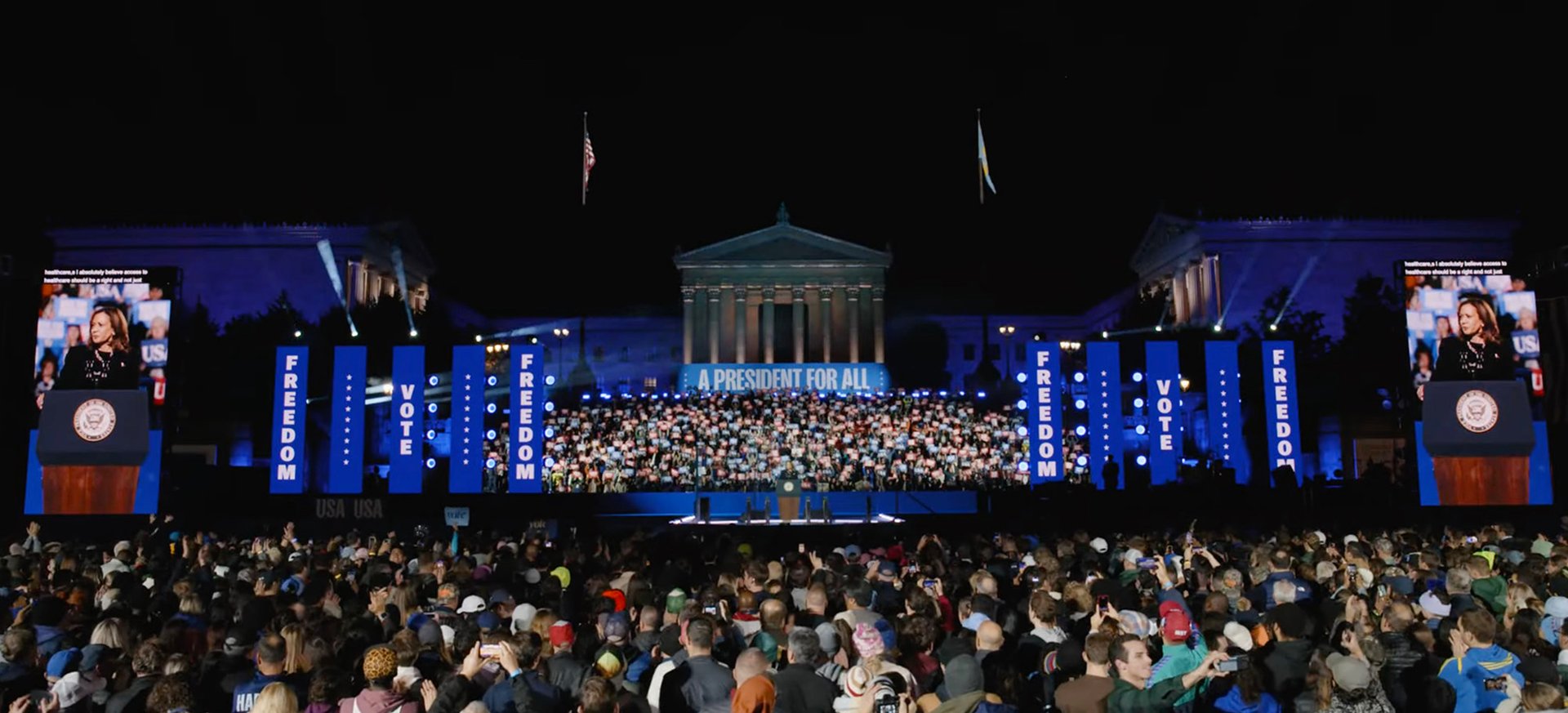
US Vice President Kamala Harris speaking at the final rally of her presidential campaign, at the Philadelphia Museum of Art, on 4 November Screenshot via YouTube
The Harris campaign’s choice of the PMA as a backdrop for her final rally is not entirely surprising. The museum is arguably the most famous, photogenic, accessible and accommodating outdoor site in the largest city in what is widely considered the most essential state for winning this election. The city of Philadelphia is also rich with historic symbolism, being where the US’s founders drafted the Declaration of Independence and having served as the country’s first capital.
“If you give me a chance to fight on your behalf as president, there is nothing in the world that will stand in my way,” Harris said at the rally, drawing on her past work as a prosecutor in California. “I don’t believe that people who disagree with me are the enemy. I’ll give them a seat at the table—that’s what real leaders do, that’s what strong leaders do.”
Trump, also hoping to secure Pennsylvania’s 19 electoral college votes—the most of any of this election’s seven battleground states—spent much of his day campaigning in the state after starting Monday in North Carolina (16 electoral votes) and holding his final rally in Grand Rapids, Michigan (15 electoral votes). The candidates need 270 electoral votes to win the presidency.
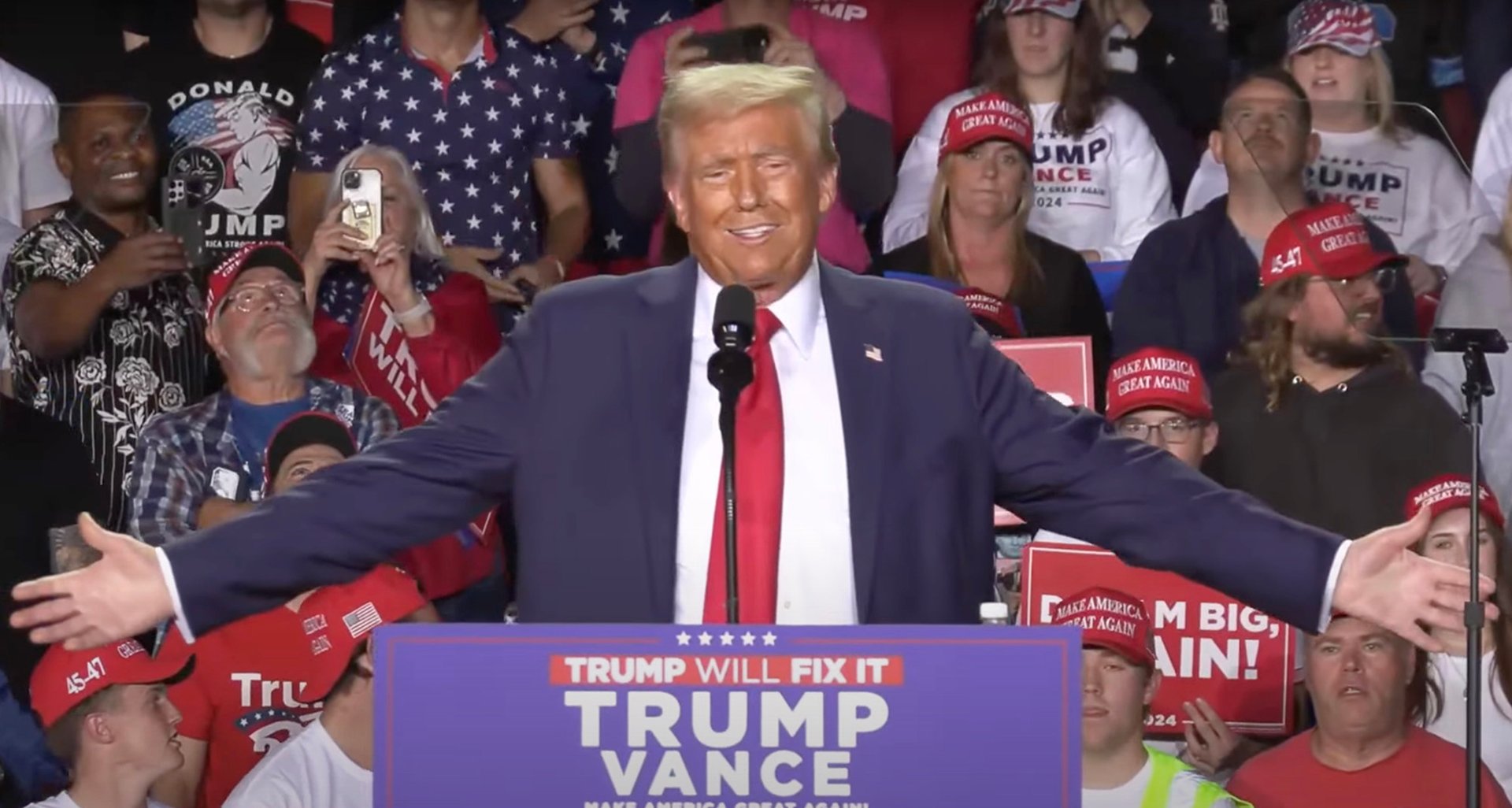
Former US President Donald Trump during the final rally of his 2024 campaign, held in Grand Rapids, Michigan Screenshot via YouTube
Harris’s ties to arts institutions stretch back decades. She served on the board of the San Francisco Museum of Modern Art (SFMoMA) from 1996 to 2011. She has served as a board member of the non-profit San Francisco Jazz and was involved with the San Francisco Symphony. In 2022 she spoke during the opening gala of the exhibition Afro-Atlantic Histories at the National Gallery of Art in Washington, DC.
Winfrey, speaking to a group of ten first-time voters she brought onstage with her at the PMA rally, said: “Thank you for exercising your freedom of expression and your power. I know some of you are feeling burnt out and bruised and inconsequential. Nothing could be further from the truth.” She added: “If we don’t show up tomorrow, it is entirely possible that we will not have the opportunity to ever cast a ballot again.”
Winfrey, like many supporters of Harris's campaign and opponents of Trump's, has expressed alarm at the former president's increasingly authoritarian and fascistic rhetoric. At a rally this week, Trump said he "shouldn’t have left" the White House after losing the 2020 election. Many of the changes to voting rules that Trump's supporters have pursued in the name of "election integrity" are seen by critics as efforts to suppress voter turnout and increase the likelihood that the election's outcome could be decided in court.
An active sector
Many in the art world, including high-profile philanthropists and organisers, have supported Harris’s campaign since she became the Democratic nominee after President Joe Biden dropped out of the race on 21 July. Some, however, have held back their support due to frustrations with the Biden-Harris administration’s handling of the war in the Middle East, and specifically for not putting more pressure on Israel to reach ceasefire agreements that would end the humanitarian crises in Gaza, the West Bank and now Lebanon.
More than 100 artists donated works to a fundraising auction and art sale organised by the online marketplace Artsy and the non-profit Artists for Kamala. Through its Artists For Democracy initiative, the non-profit People for the American Way launched parallel billboard campaigns featuring artist-designed images encouraging people to vote, criticising Trump and supporting Harris. On Tuesday afternoon and into the evening, New York's Gladstone Gallery will host a marathon reading titled Remember to Dream at its West 21st Street location in tandem with its current show of work by Carrie Mae Weems—who participated in the Artists For Democracy billboard campaign and has also contributed imagery from her famous Kitchen Table Series to one of Harris's campaign advertisements.
Trump has received little public support from the art donor class, or artists themselves. Many right-leaning art philanthropists backed his opponents in the Republican primaries earlier this year.


